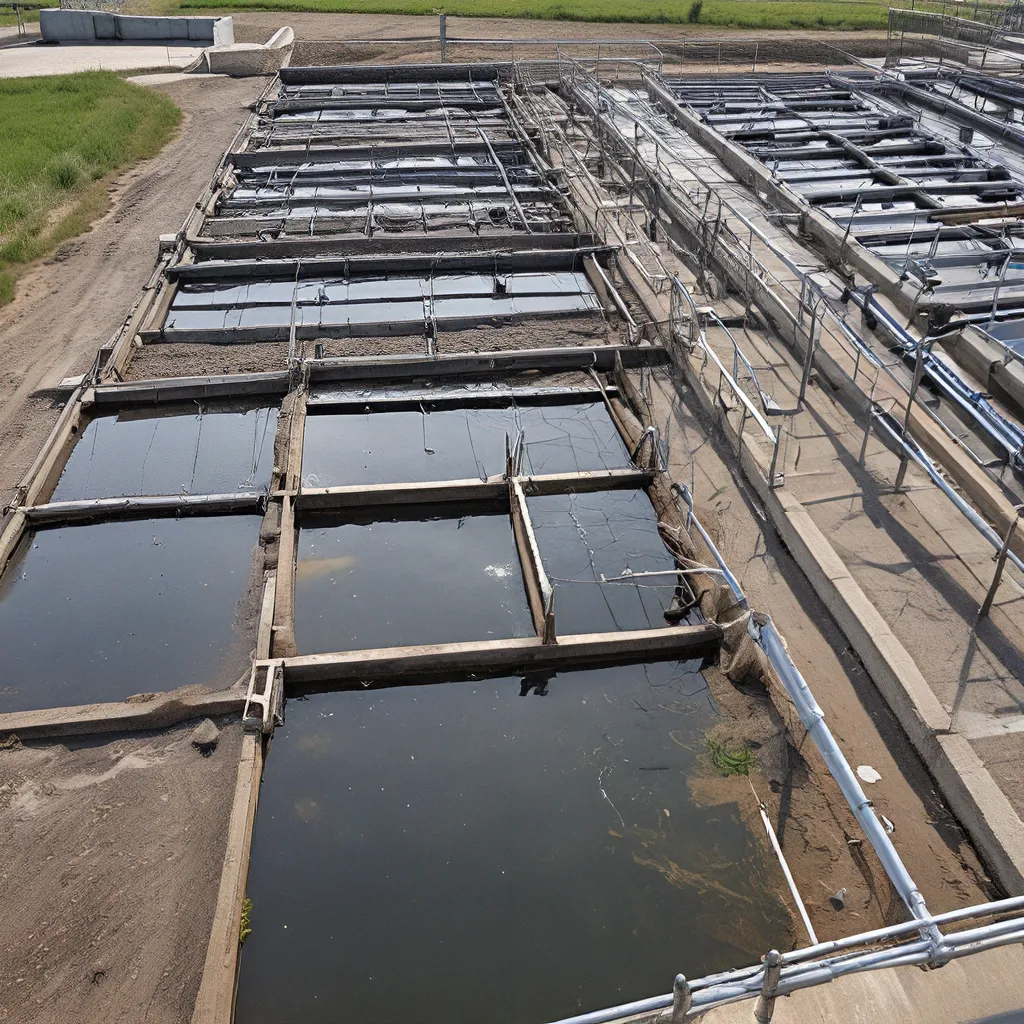
As an environmental enthusiast, I’ve always been fascinated by the innovative ways we can tackle the pressing issue of wastewater management. Recently, I’ve been delving into the realm of electrochemical processes and their remarkable potential to revolutionize the way we treat our water resources. Let me take you on a journey of discovery as we explore the cutting-edge advancements in this field.
The Untapped Potential of Electrochemical Processes
When it comes to wastewater treatment, traditional methods have served us well for decades. However, as the world grapples with ever-increasing water scarcity and the need for more sustainable solutions, it’s time to look beyond the conventional approaches. That’s where electrochemical processes come into play, offering a glimpse into a future where water can be treated more efficiently, cost-effectively, and with a lower environmental impact.
Recent research has uncovered the remarkable versatility of electrochemical processes, showcasing their ability to tackle a wide range of contaminants, from heavy metals and organic pollutants to even pathogenic microorganisms. What’s truly fascinating is the way these processes harness the power of electricity to drive chemical reactions, effectively transforming the landscape of wastewater treatment.
The Science Behind Electrochemical Processes
At the heart of electrochemical processes lies the principle of electrochemistry, which involves the interplay between electrical energy and chemical reactions. When an electric current is applied to a water-based solution, it can trigger a series of reactions that target and remove specific contaminants.
One of the key advantages of electrochemical processes is their adaptability. Depending on the specific contaminants present in the wastewater, researchers can fine-tune the electrochemical parameters to optimize the treatment process. This flexibility allows for more targeted and efficient removal of a diverse range of pollutants, making it a versatile solution for a wide array of wastewater challenges.
Emerging studies have also highlighted the potential of electrochemical processes to recover valuable resources from wastewater, such as heavy metals and nutrients. This circular economy approach not only reduces waste but also creates new revenue streams, making it an economically viable solution for wastewater treatment facilities.
The Environmental and Economic Benefits
As we delve deeper into the world of electrochemical processes, it becomes increasingly clear that they offer a sustainable and cost-effective alternative to traditional wastewater treatment methods. By harnessing the power of electricity, these processes can significantly reduce the energy consumption and carbon footprint associated with water purification.
Moreover, the compact nature of electrochemical systems allows for decentralized treatment, enabling on-site or localized water treatment, reducing the need for extensive infrastructure and transportation. This decentralized approach can be particularly beneficial in remote or hard-to-reach areas, where access to reliable water sources is a major challenge.
Researchers have observed that electrochemical processes can also effectively remove emerging contaminants, such as pharmaceutical residues and microplastics, which traditional methods may struggle to address. This makes electrochemical treatment a crucial tool in safeguarding our water resources and ensuring the long-term sustainability of our water supply.
Overcoming Challenges and Unlocking the Future
While the potential of electrochemical processes is undeniable, it’s important to acknowledge that like any emerging technology, there are challenges that need to be addressed. Issues such as electrode fouling, brine disposal, and process optimization are just a few of the hurdles that researchers and engineers are actively working to overcome.
Nonetheless, the ongoing research and technological advancements in this field are truly inspiring. I’m excited to see how the field of electrochemical wastewater treatment will evolve in the coming years, as new innovations and discoveries push the boundaries of what’s possible.
One area that holds particular promise is the integration of renewable energy sources, such as solar or wind power, with electrochemical processes. This could create a truly sustainable and self-sufficient wastewater treatment system, reducing the reliance on traditional energy sources and further enhancing the environmental benefits.
As I reflect on the journey we’ve taken together, I can’t help but feel a sense of optimism about the future of water treatment. Electrochemical processes may not be the silver bullet that solves all of our wastewater challenges, but they undoubtedly represent a promising and innovative approach that deserves our attention.
So, if you’re like me and fascinated by the potential of electrochemical processes, I encourage you to explore further. Who knows, perhaps you’ll be the one to unlock the next breakthrough in this exciting field and help shape the future of sustainable water management.